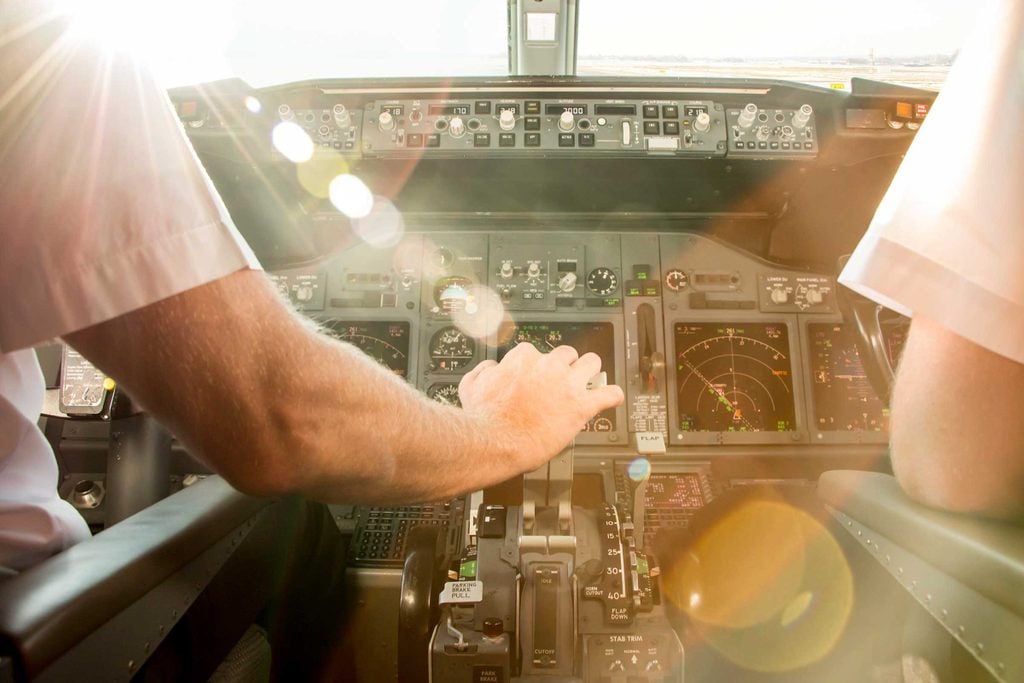The Surprising Condition Many Commercial Airline Pilots Have in Common
Updated: Jan. 06, 2017
It's fairly alarming, but no reason to fear your next flight.

With their friendly waves, reassuring smiles, and comforting updates on the ever-changing state of the seatbelt light, it’s hard to think of anyone more chipper than an airline pilot. But one survey, which began shortly after the deliberate crash of Germanwings Flight 9525 in May 2015, found that a surprising percentage of pilots aren’t as happy-go-lucky as you thought.
Hoping to shed light on “depression and suicidal thoughts” among airline pilots, researchers at the Harvard T. H. Chan School of Public Health anonymously surveyed 1,848 pilots around the world. They found that 12.6 percent met the criteria for “likely depression.” Seventy-five participants, or 4.1 percent, reported having thoughts of being better off dead or of self-harm within the past two weeks.
In comparison, an estimated 6.7 percent of all U.S. adults had at least one major depressive episode in the past year, according to the National Institute of Mental Health.
The study speculated that underreporting of mental health symptoms and diagnoses is probable among airline pilots—who self-disclose mental disorders to the Federal Aviation Administration’s medical examiners—due to the public stigma of mental illness and fear of being “grounded,” or not fit for duty.
Researchers also suggested that shift work and continuous hours, which make scheduling treatment difficult, could serve as barriers to seeking treatment. Additionally, the study argued that piloting a commercial aircraft was a high-stress occupation in its own right. Still, this is no reason to pass judgment on your pilot.
While the study “highlights the need for airlines to regularly assess all pilots’ mental health,” Madeleine McGivern, head of workplace well-being programs at U.K.-based mental health charity Mind told CNBC, “assumptions about risk shouldn’t be made across the board for people with depression or any other illness, mental, or physical.”
“There will be pilots with experience of mental health problems who have flown safely for decades,” she says.













